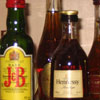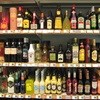
Liquor Amendment Bill moves to ban alcohol advertising

The explanatory memorandum on the objects of the Bill provides that it seeks to advance a deliberate attempt by the state to "counter the normalisation of alcohol and liquor usage", citing the "prevalence of increased liquor consumption and alcohol-induced dangers to society (that) are increasing".
The Bill seeks to specifically amend section 9 (Advertising restrictions) of the Liquor Act 59 of 2003, as amended (the Liquor Act). Section 9 of the Liquor Act currently provides as follows:
- A person must not advertise:
(a) any liquor or methylated spirits:
(i) in a false or misleading matter; or
(ii) in a manner intended to target or attract minors; or
(b) any substance that is prohibited in terms of the Liquor Act. - A person must not advertise any substance as liquor or methylated spirits if that substance is not liquor or methylated spirits, respectively, as defined in the Liquor Act."
Section 9 is retitled by the Bill as "Advertising and sale restrictions" and removes references to "liquor" in section 9 (1) and (2). In addition, the Bill adds the following as subsections (3) and (4):
- "A person may not:
(a) use advertisement as defined in the Liquor Products Act, 60 1989, as amended (the Liquor Products Act) to promote liquor or the consumption of liquor or cause a person to use advertisement for such purposes;
(b) promote or effect product placement, or cause a person to use promotion or product placement, to promote liquor or the consumption of liquor; or
(c) use a manufacturer's name or any brand element through direct or indirect means to promote liquor or the consumption of liquor. - A registered person may not:
(a) organise or promote any organised activity that is to take place in whole or in part, in the Republic;
(b) make any financial contribution to any organised activity that is to take place, or is taking place or has taken place in whole or in part, in the Republic."
Based on the above, the proposed amendments provide for an outright ban on the advertising, promotion and product placement of liquor to encourage liquor consumption in all forms of media. The amendments also prohibit manufacturers, distributors or retailers from organising, promoting or making financial contributions to an activity that promotes the consumption of liquor, among other measures.
Interestingly, the proposed amendments in the Bill closely align with the prohibition of the advertisement and promotion of tobacco products under the Tobacco Products Control Act 83 of 1993, as amended.
Introducing ket definitions
The Bill also seeks to introduce various key definitions in section 1 of the Liquor Act, which are crucial to understanding the scope of these proposed amendments:
- "(B)rand element" in relation to a brand of liquor, means the brand name, trade mark, trade name, distinguishing appearance, logo, graphics, design, slogan, symbol, motto, selling message, print, typeface, recognisable colour or pattern of colours, or any other symbol of product identification or association.
- "(O)rganised activity" means any activity or event:
(a) which a member of the public may attend or participate in;
(b) which is organised for the purpose of entertainment, sport or recreation or for educational or cultural purposes; and
(c) where liquor, a brand element, or company name which is usually associated with liquor or a brand element, is used in the name, description or advertising of the activity or event, to promote liquor consumption; and
excludes any activity or event arranged by a registered person where the only attendees are shareholders, partners, stakeholders, employees, existing business clientele upon direct and specific invitation, suppliers or service providers or spouses or partners of any of the aforementioned person. - "(P)roduct placement" means the depiction of, or reference to, liquor or a brand element in a broadcast programme, film, video recording, telecast, social media or other electronic medium for which the producer of, or any other person associated with, the broadcast programme, film, video recording, telecast, social media or other electronic medium, receives consideration in case, kind or otherwise.
- "(P)romotion", unless the context indicates otherwise, means any activity that supports the sale or liquor, or that encourages the use of liquor.
The proposed definitions are drafted in very broad terms and will therefore have a far-reaching impact on all relevant stakeholders.
Transitional provision
The Bill does, however, make provision for transitional provisions, which state that any agreement for the:
- advertisement, promotion or product placement, to promote liquor or the consumption of liquor;
- use of a manufacturer's name or any brand element through direct or indirect means to promote liquor or the consumption of liquor; or
- organising or promoting of, or for the making of a financial contribution to, an organised activity contemplated in section 9(4),
entered into before the commencement of the Bill as an Act, remains valid and enforceable, is not subject to the Act and may be executed after the commencement of the Bill as an Act.
Support and economic concerns
Thus far, the Bill has received support from the Congress of South African Trade Unions (Cosatu). However, the Bill raises serious concerns about the potential adverse economic effects on both the liquor and creative industries.
The Bill is likely to significantly affect industry stakeholders, including liquor manufacturers, distributors, retailers, advertisers and event organisers who may rely on brand promotion to generate revenue. Notably, the Bill's restrictions on "organised activities" may effectively ban liquor brand sponsorship of sports, music and cultural events.
The proposed amendments, if effected, will have severe economic consequences including decreased revenue generated from liquor sales as well as job losses across all impacted sectors.
Commentary and approval pipeline
The notice of intention to introduce the Bill and an invitation to comment was published in the Government Gazette No. 41957, notice 619 of 2018, as far back as 4 October 2018, inviting interested parties and institutions to submit written representations on the proposed contents of the Bill to the Speaker of the National Assembly within 30 days of publication of the notice.
Following its introduction into the National Assembly, the Bill was referred to the Trade, Industry and Competition portfolio committee for consideration, which must give interested people and institutions an opportunity to comment on the Bill. The Bill will be debated in the committee and amended, if necessary.
Once this process is complete, the Bill is submitted to a sitting of the National Assembly for further debate before a vote is taken. After approval by the National Assembly, the Bill moves to the National Council of Provinces for consideration. Upon passing by the National Council of Provinces, the Bill is submitted to the President for assent.
Echoes of 2016 Bill
It must be noted that the proposed amendments introduced by the Bill echo elements of the now-lapsed Liquor Amendment Bill, 2016, published in the Government Gazette for comment by the Department of Trade and Industry (as it was then) (the 2016 Bill).
Like the current Bill, the 2016 Bill sought to prohibit the advertisement of liquor, although only on public platforms. It therefore remains to be seen whether the current Bill will gain the necessary traction to be enacted into law, given its far-reaching implications for the liquor industry and beyond.
As South Africa weighs public health against economic impact, all eyes will be on the parliamentary process that will ultimately determine the fate of the liquor industry’s advertising future.


